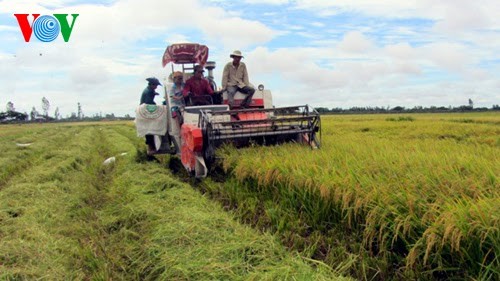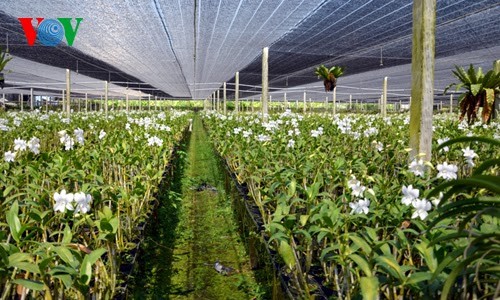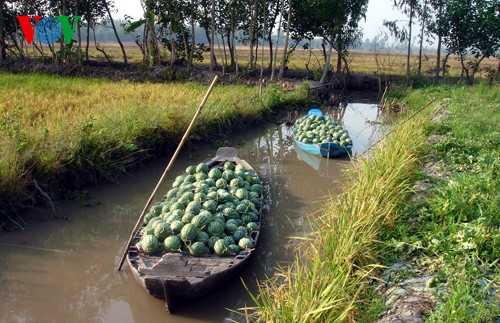(VOVworld) - The Trans-Pacific partnership agreement offers a major opportunity and challenge for Vietnam’s agriculture exports. But currently seafood and rice exports are underperforming expectations. To prepare for TPP membership, Vietnam is restructuring its agriculture but domestic enterprises will have to fully understand the trade deal to maximize its opportunities.
 |
| Application of advanced technologies and mechanization should be promoted in agricultural production. |
Each year, the Hung Hau agriculture company in Ho Chi Minh City’s Tan Phu district earns about 17 million USD from exporting aquatic products to the US, Europe, and Japan.
Hung Hau’s director general Tu Thanh Phung said that they “are improving the production process and capacity, renovating technologies, and expanding material input supply sources to be able to trace back the origin of products and meet TPP origin rules.”
 |
| Growing orchids in rice fields is a way of crop restructuring has resulted in higher income for farmers. |
A majority of Vietnam’s 3,500 agricultural businesses are small or medium-sized enterprises and haven’t joined the global direct distribution network so it’s impossible for them to control their production and market shares.
Nguyen Hoang Dung, director of Ho Chi Minh City’s Institute for Economics and Management, noted that “the most important thing for domestic enterprises is information. Government agencies and businesses should work with each other more closely and update information in a time manner so that enterprises can respond to global changes. Under the TPP, we must immediately lift tariffs imposed on a number of items but there are some products where we still enjoy a delay. It means we must change right now.”
Vietnam is one of the world’s leading rice exporters but its brand name isn’t yet recognized internationally. To resolve the situation, in addition to re-mastering production, improving breeds, and building trademarks, the domestic agricultural sector should clarify market needs so as to increase the value of Vietnamese rice. According to economist Nguyen Dinh Bich, “during TPP negotiations, many Japanese enterprises have come to Vietnam to look for local partners to produce high-priced rice pursuant to Japanese standards. Markets like the US, Japan, and Australia are particularly interested in such qualified products.”
 |
| Growing watermelons in rice fields is another successful model of crop restructuring bringing in high productivity and earnings. |
To make full use of and overcome challenges set by the TPP, Vietnamese farm produce should be produced in chains to create competitive price, quality, and food safety advantages.
Businesses and farmers must link up and the state should continue to encourage major enterprises to invest in agriculture.